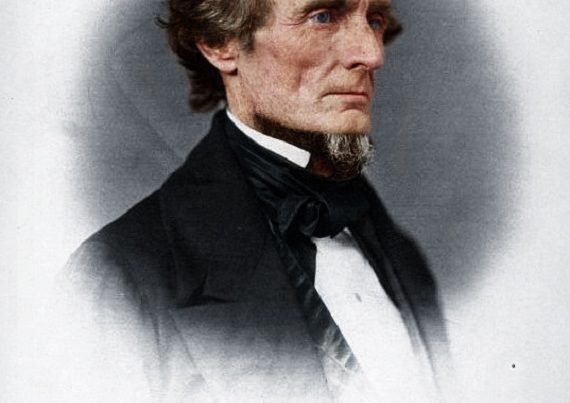Was California Governor and Senator Leland Stanford—founder of Stanford University—sufficiently racist to justify dropping his name from the university and destroying all publicly displayed memorials to him? Consider Stanford’s remarks in his acceptance speech as the Republican Party’s gubernatorial candidate in 1859:
[T]he cause in which we are engaged is one of the greatest in which any can labor. It is the cause of the white man…I am in favor of free white American citizens. I prefer free white citizens to any other race. I prefer the white man to the negro as an inhabitant to our country. I believe its greatest good has been derived by having all of the country settled by free white men.
Readers who might try to invent an excuse for Stanford by questioning whether he was speaking sincerely, or politically, should note that the nominee’s opinions were impromptu because he added, “…I have not prepared any speech. I come here tonight without having framed in my own mind what I should say.”
Stanford’s chief reason for supporting the Republican Party on the eve of the Civil War was the Party’s advocacy for a transcontinental Railroad, for which Stanford’s Central Pacific would become a prime beneficiary. The nominee clarified in the same acceptance speech, “We are in favor of the [transcontinental] Railroad…I am in favor of the railroad and it is the policy of this state to favor that party which is likely to advance their interests.”
About a month before President Lincoln issued the Preliminary Emancipation Proclamation in September 1862, Governor Stanford wrote, “The Republican Party early appreciated the real character of the political issues before the [American] people. Slavery was not the real issue…Our cause…is the maintenance of the Union.”
Although Stanford admittedly commented at least once that he was an “uncompromising” opponent of slavery, he made that statement during the second year of the Civil War. That happened several months before he wrote his opinion above that “slavery was not the real issue” of the War. If, however, contemporary censors permit Stanford to salvage his legacy by changing his mind on slavery, it should be noted that they inconsistently deny the same privilege to Jefferson Davis who told Northern peace commissioners in July 1864, “We are not fighting for slavery. We are fighting for independence…”
If Stanford’s racism toward blacks is not sufficiently repellant to today’s selective censors, they may want to consider his racism toward Asian-Americans. In speaking as governor Stanford said:
“The presence of numbers of that degraded…people [Chinese-Americans] would exercise a deleterious effect upon the superior [white] race….To my mind it is clear that [Asian-American] settlement among us is to be discouraged by every legitimate means. Large numbers are already here, and unless we do something early to check their immigration, the question which of the two tides of immigration meeting upon the shores of the Pacific”—the Euro-American and the Asian—“shall be turned back, will be forced upon our consideration when far more difficult than now of disposal…”
Finally, if Stanford’s racism is an insufficient reason to justify removing his name from the eponymous university, politically correct zealots may wish to investigate the corruption and bribery that enable him, and his three partners, to advance the interests of the Central and Southern Pacific railroads…but that’s another story, and a good one.
Philip Leigh is the author of Southern Reconstruction.







